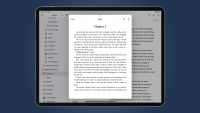
Publish and be cancelled
thecritic.co.uk – Wednesday June 8, 2022

Unreadable and insufferable woke academics are boycotting the publishers that grudgingly print their inane work
Why do publishers publish the books they do? The answer seems obvious: they publish what they think will sell because they have to make money, unless they have the luxury of being some heavily subsidised university press, or a publisher of poetry (“the invisible link that connects literature and poverty”, to adapt Hazlitt). Most will, to some degree, specialise in certain areas — be it in terms of subject matter, type of book or both — because one needs to know a market well and establish one’s presence in that market before one can realistically expect to make money, or at least keep afloat.
Ultimately, however, that is really no answer. Inevitably, the personal interests, contacts, judgement and worldview of the editors and publishers involved will be the most fundamental factors that shape the output of a publisher, even if commercial considerations always remain a limiting factor.
Any press needs its share of bestsellers, but it’s far from unknown for publishers to take on individual books that they calculate are likely to lose them money, or at least are unlikely to be very profitable, for a whole number of reasons: perceived prestige or reputational enhancement, personal commitment to a cause, whimsy — and so on. Certainly, a pure, abstract desire to make money is not the major factor (if riches beyond the dreams of avarice are one’s aim, then publishing will be a life-long disappointment).

Why I Make Rules for My Writing Students—And Why I Break Them
lithub.com – Wednesday June 8, 2022

The legendary golfer Jack Niklaus has an unorthodox philosophy when it comes to teaching kids how to play the game. Most instructors want to build a young golfer’s swing from the bottom up, drilling them on the fundamentals, but Niklaus recommends letting kids swing as hard as they can. Don’t clutter their minds with rules. Don’t tell them how to grip the club or how to stand. Don’t demand that they keep their front arm straight, their head down. There will be time for all that.
When they’re just starting out, what’s important is that they have fun. Let it rip. They might miss the ball, top it, slice it, hook it, but who cares—they’re learning what works for them. Their muscles are figuring out their own way to swing. They’re developing their own style.
When I started teaching high school English ten years ago, my plan was to be the Jack Niklaus of writing instructors. I’d let my students let it rip. I’d give them the freedom to write what they wanted, in whatever genre they wanted, in whatever form they wanted. Which I did. And which I still do, more or less. I teach an advanced Creative Writing class to seniors, and they can submit prose, poetry, drama—whatever they’re into, we’ll workshop it.
But here’s what happened over the years: my students kept making the same mistakes, using the same broken tools. It was like watching a seven-year-old golfer shank the ball into a pond again and again, scaring all the frogs. The golfer gets frustrated. You get frustrated. The frogs get frustrated.

New Literary Agency Listing: Spring Literary
firstwriter.com – Wednesday June 8, 2022

Specialises in children’s and YA writing and illustration. Works with all the major publishing houses, plus entertainment companies, to ensure the best match for each book, author and illustrator.

Words Without Borders Reboots
publishersweekly.com – Tuesday June 7, 2022

The nonprofit organization Words Without Borders launched in 2003 to aid in publishing works from countries and cultures underrepresented in English-first language regions. WWB now has an archive of 12,000 published pieces across 140 countries and 130 languages. Though their mission has not changed, there are several new developments planned to expand the literary conversation.
“I think it’s easy to forget just how much has changed for both the publication and the landscape of international literature since we started in 2003,” said Eric M. B. Becker, digital director and senior editor.
The publication was among the first online-only literary magazines, has evolved to become a platform for writers and translators alike, with programs like its Poems in Translation contest, the Indigenous Writing Project, and the Words Without Borders Campus program. Throughout, the mission has remained the same: to offer free access to international literature through translation online to anybody with an internet connection.
New Publishing Imprint Listing: Engram Books
firstwriter.com – Tuesday June 7, 2022
Imprint to focus on memoirs, auto-biographies, and biographies – including books about the challenges of disabilities. Especially interested in books that will be uplifting for the disabled community; that will reach out to others and let them know they are not alone, that others have gone through similar issues; how to deal with those issues; where to find help - and similar.

18 of Our Favorite Books About the Craft of Writing
tor.com – Saturday June 4, 2022

Are you a writer? Do you like learning about the creative process, either for your own projects, or just cause you think it’s interesting? This post is about to make your day. As I’m sure you know, there is a booming industry of books on the art and craft of writing, from all sort of different authors, who cover all sorts of different angles. I’ve rounded up 18 of my favorites.
Let me start with one piece of my own advice: all of the books on this list are very good, and helpful, and if you’re a writer I think you should read them! BUT: What makes a writer is creating a space, as often as possible, to think and write. And that can mean many things! It can be typing into a notes app during your baby’s nap, it can mean an hour before work each day, it can mean sitting under a tree with a Moleskine and a fancy pen, it can mean one long writing session a week, or dictating during your commute, or staying up until 4AM writing fic.
Also read as much as possible, in as many genres as possible—and to that end, here’s a book list!

How to write a novel in Ulysses on iPadOS
techradar.com – Thursday June 2, 2022

Writing a book, whether it’s fiction or fact, is a challenging and daunting task, and it makes sense to use every tool at your disposal to make the job easier.
While traditional word processors have always been a popular choice, we now have apps more tailored to large and complex writing projects, and one of the premier examples is Ulysses.
Ulysses(opens in new tab) is a Markdown(opens in new tab) writing environment, which means you write in plain text, using some simple punctuation to apply styling. The syntax will be familiar to almost anyone who’s written a text message or a tweet; for example, you can surround a phrase with underscores for emphasis, use double-asterisks for boldface, or use hyphens to make a bulleted list. Ulysses also offers controls to apply the styling for you but it's all easy to learn.

Wallace Stegner and the Trap of Using Other People’s Writing
newyorker.com – Thursday June 2, 2022

For years, troubling charges—appropriation, plagiarism—have hovered over Wallace Stegner’s famous novel, “Angle of Repose,” the story of a mining engineer and his wife living in the American West during the late eighteen-hundreds. There’s no question that Stegner used the life of the writer Mary Hallock Foote as the basis for his novel, nor that he used passages of her work without attribution, but at first few people knew it. In 1971, when Stegner’s novel was published, Foote’s memoir was unpublished. When her book came out the following year, Stegner’s novel had won the Pulitzer Prize, and it was protected by a halo of esteem.
But charges began emerging in the late seventies. In 2000, in an introduction to the novel, Jackson Benson, Stegner’s biographer, defended Stegner’s inclusion of thirty-eight passages from Foote’s letters, “approximately 61 pages,” all without attribution. It’s “a brilliant tactic,” Benson says, that creates “an invaluable part of the novel” and provides “depth and authenticity.” As to Foote’s life, Benson says the family had encouraged Stegner to use the material, believing that Stegner would tell the story of Foote’s productive career and happy marriage. In a preface, Stegner wrote, “This is a novel which utilizes selected facts from their real lives. It is in no sense a family history.” But it was recognizably a family history—one that distorted the lives it described. More recently, a persuasive essay by Sands Hall, in the journal Alta, accuses Stegner of plagiarism, the appropriation of Foote’s life, and the slandering of her name. Instead of hewing to the historical facts, Stegner fabricates an adulterous liaison for the character based on Foote, a transgression that costs the life of a child and destroys her marriage. Some people who knew about Foote assumed that’s what happened in her own life, when it did not.

Publishers scared of cancel culture made me rewrite my book, says Anthony Horowitz
telegraph.co.uk – Sunday May 29, 2022

Anthony Horowitz was told to rewrite his latest children’s book and remove jokes because publishers were terrified of cancel culture, he has claimed.
The best-selling author said children’s publishers were “more scared than anybody” about causing offence, and he was given a list of things he “could and couldn’t say” regarding gender or ethnicity.
He suggested that the industry take inspiration from Ricky Gervais, who has defied the “shrill voices” of Twitter to make jokes about the trans debate.

Maggie Shipstead on Dealing with Mistakes in Writing
lithub.com – Sunday May 29, 2022

Maybe five years ago I read a novel in which a man drowns in a lake, and, a few minutes later, his body is found floating on the water’s surface.
If any of my writer friends are reading this, they’re probably groaning because they’ve heard me harp on this example before. What can I say? Sometimes I’m irritating and pedantic. But here’s the thing: it doesn’t make any sense for that body to float. If bodies were inherently buoyant, no one would ever drown. For that scenario to work, the man’s lungs would have filled with water, pulling him under and killing him, and then, almost immediately, something — the condition of death? — would have sent his body rocketing back up to the surface, where, despite being heavier now than before, he floated. No. Bodies float because gases of decomposition eventually lift them. The process takes time: at least a couple days even in relatively warm, shallow water, longer in colder, deeper water. Many bodies never surface at all. But the image of the floating body is pervasive in our culture and our entertainment (“We’ve got a floater,” says one TV cop to another), so familiar that a writer may skip directly from drowning to floating without stopping to think.
Get the free newsletter | Submit a news item or article | Get Writers' News for your website





